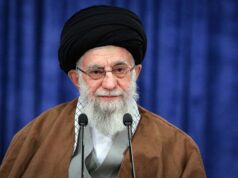In a recent Rasmussen poll, just 53 percent of American adults said they believe capitalism is better than socialism. The rest thought socialism was better or were not sure. The poll shows just how much the global economic crisis has shaken the confidence that, until recently, the United States-led free market economy will continue to bring more prosperity and higher living standards to more people in more places than any other system in history. Overseas, meanwhile, allies and adversaries alike have stepped forward to offer alternatives to our system. Proposals range from greatly enhancing government regulation of markets to replacing the dollar as the world’s primary currency.
In short, the current economic crisis has also sparked a crisis in confidence, both at home and abroad. President Barack Obama must address both if we are to emerge from this recession stronger than when we entered it.
At home, Obama and Congress must set an example for the world by addressing America’s economic challenges that either contributed to the global downturn or threaten the nation’s future prosperity—from lax regulation of Wall Street, to huge budget deficits, to rising calls for protectionism. On the global stage, Obama must lead the effort to plug the holes in the global economic system without robbing it of the vitality and entrepreneurial spirit that have served the world well for over half a century.
Robert J. Barbera, the former Wall Street and congressional economist, sums up these challenges in The Cost of Capitalism: “Going forward, both policymakers and mainstream economic thinkers need to embrace a model for capitalism that squares with both its virtues and its flaws… an enlightened synthesis, one that celebrates free market risk-taking but establishes policies to rein in inevitable excesses, needs to be forged.”
Creating Context
When World War II drew to a close, and the future of the global economy was uncertain, 730 delegates from 44 allied nations gathered at the Mount Washington Hotel in Bretton Woods, New Hampshire. There, under U.S. and British leadership, they created the pillars of today’s global economic architecture. The Bretton Woods agreement of July 1944 established the rules for multilateral negotiations over economic policy, and created such institutions as the International Monetary Fund and the International Bank for Reconstruction and Development.
Though far from flawless, Bretton Woods laid the groundwork for decades of economic progress. In the United States and across the world, businesses were launched, jobs were created, living standards rose, poverty fell, and more people had access to more goods and services than ever.
The subsequent collapse of the Soviet Union and China’s integration into the global economy heralded what scholar Francis Fukuyama termed, “the end of history.” U.S.-led free market capitalism was the last man standing. The “Washington Consensus” from Bretton Woods ruled. Struggling nations were encouraged to pursue more trade, less regulation, lower taxes, more fiscal discipline, and other key features of Western policymaking.
“The market-centered international order of the twenty-first century commanded almost universal allegiance,” Michael Mandelbaum writes in The Ideas that Conquered the World, “not only because every country saw potential benefit in it, but also because there was no viable alternative.”
As economies continued their seemingly endless expansion and stock prices soared, Wall Street’s titans created financial instruments that would expand credit, boost home ownership, and bring prosperity to even more Americans. But as these financial instruments grew increasingly complex, the U.S. federal government failed to keep up. Regulatory regimes grew outdated, inadequate to ensure the safety of new financial products. As the economy roared ahead, our officials neglected to take the minimal, non-intrusive steps that might well have prevented economic decline.
The Perfect Storm
When the inevitable economic downturn arrived, it appeared more like a systemic unraveling. As Obama said recently in a speech at Georgetown University, it was “caused by a perfect storm of irresponsibility and poor decision-making that stretched from Wall Street to Washington to Main Street.”
It started in housing. In recent years, mortgage lenders provided more opportunities for more borrowers to buy bigger homes on increasingly lenient terms—with little if any money down, and with payments starting low but rising over time. Buyers eventually would have to borrow more to make their monthly payments, but they presumed they could borrow against the rising value of their homes.
When home values stopped rising and then began to fall, many buyers defaulted. Mortgage lenders and other firms with mortgages on their books grew shaky, as fear spread across the economy. Businesses retrenched, unemployment soared and, by the end of last year, the housing problem had sparked the nation’s worst financial crisis since the Great Depression.
In the short-term, Obama’s “most urgent task has been to clear away the wreckage, repair the immediate damage to the economy, and do everything we can to prevent a larger collapse.” Longer term, he added, “[w]e must lay a new foundation for growth and prosperity.”
Global Challenges
But as Obama focused on the short-term and then on the long, he found serious obstacles in his path. Specifically, global confidence in the U.S.-led system had been shaken. The longer this lasts, the greater the dangers of a lingering downturn—and of a future that lacks the strong foundation to which he referred.
Six months before hosting the G-20 (leaders of the world’s largest economies) in London this spring, British Prime Minister Gordon Brown called for “a new Bretton Woods—a new financial architecture for the years ahead.” But as the meeting grew nearer, hopes for such visionary change gave way to the reality of broad disagreement about how much change was needed and what kind.
Washington and its European allies seemed to view the economic crisis from opposite ends of a telescope. The former had adopted a huge stimulus law at home, pumping enormous new spending and tax cuts into the economy in classic Keynesian fashion, and only then proposed changes in financial regulation. The latter, by contrast, resisted Obama’s calls to launch similar stimulus efforts, and made clear that they believed aggressive financial re-regulation was far more important.
In the end, the G-20 agreed only to provide $1.1 trillion for the International Monetary Fund to lend to nations that were facing problems coping with the economic mayhem. It was an ironic place for the G-20 to find agreement, for the IMF had played a central role in promoting the policies of the old “Washington Consensus.”
With IMF funding in place, with world leaders agreeing to disagree over stimulus funding, and with financial re-regulation a work in progress, Obama’s remaining global imperative is to lead the industrial world away from protectionism and toward a new round of market-opening trade agreements.
However, just weeks after the G-20 held its initial meeting in Washington in November and agreed to avoid protectionism, the World Bank reported that 17 of its 20 members had adopted protectionist measures. Nations raised tariffs, banned one another’s products, and bailed out their own domestic industries, with each action eliciting protectionist reaction from other nations. Sadly, even without such new obstacles to trade, the World Bank had predicted that the weaker economic conditions would cause global trade to take its steepest drop since World War II.
Obama’s challenges ahead are daunting. He must now revive talks on a new global trade agreement, which is paralyzed by disputes over agricultural subsidies and other thorny issues. He must also push a reluctant Democratic Congress to pass the bilateral trade deals that U.S. negotiators have inked with Colombia, South Korea, and Panama. This will both enhance the flow of goods and services around the world as well as set the right example for other nations that are tempted by protectionism.
Domestic Challenges
While rallying support for a coordinated global effort, Obama also must address the domestic pieces of the economic problem. They are three-fold: financial reform, fiscal responsibility, and trade promotion.
Financial reform is key to restoring confidence. The Federal Reserve, Treasury Department, and Congress have allocated enormous sums since last fall to bolster banks, insurance companies, automakers, and other industries. But the focus has morphed over time, with strategies and justifications changing to fit the ever-shifting priorities of the White House, Capitol Hill, Federal Reserve offices, and beyond.
Only recently did Treasury Secretary Timothy Geithner propose a new regulatory framework—with a new independent agency to monitor major institutions whose failure could rattle the economy. That new framework also would include tougher rules for hedge funds, tighter restrictions on money market mutual funds, and greater regulation of over-the-counter derivatives.
Geithner will not have it easy. He will need to shepherd the plan through Capitol Hill, where liberal Democrats may favor a heavier hand for government while financial lobbyists will work with their Republican allies to push for a lighter one.
On the fiscal front, U.S. profligacy of recent years has left the nation economically dependent and vulnerable. China, which has invested heavily in U.S. federal securities, recently expressed concern, hinting at fears that the United States might seek to reduce the burden of its debt by inflating its currency. Obama reassured China and other investors that their money is safe, but the need to do so makes clear that foreign investors may not have an unlimited appetite for U.S. debt.
Though the Administration was correct to enact a stimulus measure to jumpstart the economy, the stimulus has sent short-term deficits soaring. Thus, critics rightly assert that America must address its long-term fiscal picture. Indeed, even after the economy recovers, the nation will face deficits equaling at least four percent of Gross Domestic Product, a level that threatens future economic vitality.
The key to lower deficits, less borrowing, and less dependence on foreign investors who may not have America’s best interests at heart is health care reform. Soaring costs throughout the health care system are fueling the exploding growth of Medicare and Medicaid, and that growth will largely fuel future deficits. The faster Washington can reform health care and bring those costs under control, the more quickly it can restore fiscal sanity.
On the trade front, as discussed above, Obama must resist the protectionist fever that has swept the industrial world. He must stand his ground, even as businesses worry about competition, labor unions fear job losses, and foreign governments adopt their own protectionist measures by bailing out industries, raising tariffs, and banning certain imports.
Finally, while restarting global trade talks and pushing the aforementioned bilateral trade agreements through Congress, Obama must craft a compelling narrative to sell the benefits of free trade to a skeptical American public and a hostile Democratic Congress. He must explain that trade opens markets abroad, enabling businesses to sell their products overseas and, in the process, create high-paying jobs at home.
The Stakes
President Obama, who assumed office with less governmental experience than any president in modern U.S. history, faces a daunting set of challenges. Overseas, he must restore confidence in U.S. free-market capitalism and rally other nations to make the necessary changes in the global economic architecture to lay the groundwork for future growth. At home, he must convince Congress to adopt needed financial reforms, address long-term budget deficits that make the United States increasingly vulnerable, and rebuild national consensus in favor of expanding trade.
Much is riding on Obama’s success. With the future of American-led capitalism on the line, the stakes could not be higher.
Lawrence J. Haas, former communications director to Vice President Al Gore, writes widely on foreign and domestic policy.





